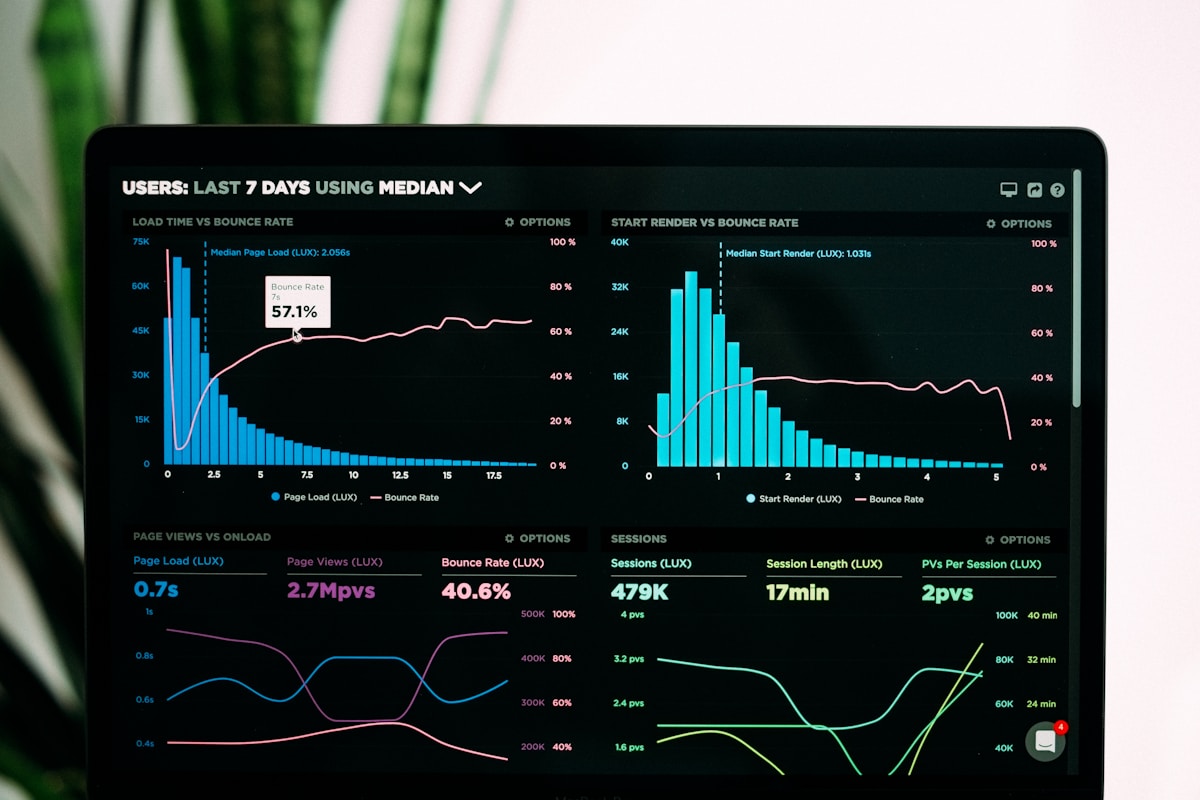Epic Games filed lawsuit October 7, 2025 in U.S. District Court for the Eastern District of North Carolina against Michigan residents Idris Nahdi and Ayob Nasser, accusing them of abusing the Fortnite Island Creator Program by creating over 20,000 fake bot accounts between December 2024 and February 2025 that artificially inflated player engagement on their custom UEFN-created islands, earning tens of thousands of dollars in fraudulent payouts from the 40% revenue share pool funded by Item Shop purchases. Epic’s investigation discovered that 80-99% of player engagement on defendants’ islands was artificial, with bots programmed to access Fortnite through cloud gaming services simulating real human activity including active playtime, returning players, and interaction metrics that determine creator payouts. The lawsuit seeks monetary damages, recovery of wrongfully obtained funds, permanent injunction banning both defendants from creating Epic accounts or accessing Fortnite—extending restrictions to their ‘heirs and successors’—plus allegations of breach of contract, copyright infringement, and fraud after the pair ignored Epic’s demand to delete all Fortnite copies and continued creating new accounts distributing fake engagement across multiple islands masking their scheme.
- How the Bot Scheme Worked
- The Island Creator Program Economics
- Epic’s Investigation Timeline
- Post-Investigation Defiance
- The Legal Allegations
- What Epic Wants From the Court
- Impact on Legitimate Creators
- Broader Industry Context
- Epic’s History Fighting Fraud
- Community and Creator Reactions
- Frequently Asked Questions
- Conclusion
How the Bot Scheme Worked
According to Epic’s complaint, defendants programmed bot accounts to engage with their own Fortnite Islands by using cloud gaming service that allows users to play video games remotely, simulating real human engagement on their creations. The bots accessed Fortnite through cloud infrastructure rather than traditional installations, creating appearance of legitimate player sessions that Epic’s engagement tracking systems initially failed detecting as fraudulent. The cloud gaming approach allowed defendants scaling operations massively without requiring 20,000+ physical devices or local network infrastructure that would have triggered easier detection.
Polygon reported that defendants worked together creating multiple Islands in attempt to disguise their scheme by spreading fake engagement across multiple developer accounts and Islands. The distribution strategy prevented single island showing suspiciously inflated metrics that would immediately flag Epic’s fraud detection systems, instead creating network of moderately-popular islands whose collective fraudulent payouts totaled tens of thousands of dollars. The sophisticated coordination suggests premeditated fraud rather than opportunistic exploitation of program vulnerabilities, with deliberate attempts evading detection through diversification tactics.
The Island Creator Program Economics
Fortnite’s Island Creator Program, launched alongside Creator Economy 2.0 in 2023, allows UEFN (Unreal Editor for Fortnite) developers creating custom islands earning payouts from pool comprising 40% of revenue from Fortnite’s Item Shop and related real-money purchases according to Aftermath’s reporting. That pool gets divided based on two factors: player popularity and player retention, with exact calculation methodology remaining proprietary though Epic confirmed active players, active playtime, and returning players ‘among other stats’ determine individual creator shares.
The system creates incentives for legitimate creators producing engaging content that retains players, but also creates vulnerability to fraud where artificial engagement manipulates payout calculations. Gaming Amigos noted that more players equal more money through Epic’s creator payout program, making engagement metrics directly convertible to cash incentivizing manipulation. The 40% revenue share represents substantial investment from Epic supporting creator ecosystem, though fraudulent siphoning from that pool harms legitimate developers whose rightful earnings decrease when fraudsters capture undeserved portions.
Epic’s Investigation Timeline
Epic started suspecting misconduct after the two creators received payments last December 2024, according to 80 Level reporting. The company conducted investigation revealing that 80% to 99% player engagement on defendants’ islands was artificial depending on specific islands examined. That extreme percentage made fraud detection relatively straightforward once Epic scrutinized traffic patterns, with bot behavior lacking organic variability characterizing genuine human gameplay including irregular session lengths, navigation patterns, and interaction diversity.
Once Epic noticed something funky and stopped payments, the bots all suddenly disappeared according to PC Gamer’s description. The immediate cessation of fake engagement upon payment suspension provided smoking gun evidence confirming defendants’ control over bot networks rather than coincidental legitimate player decline. That temporal correlation between payment stoppage and bot disappearance demonstrated direct causation that would be statistically impossible if engagement were genuine, giving Epic compelling evidence for legal action.
Post-Investigation Defiance
After uncovering the fraud, Epic told defendants to stop playing Fortnite and ‘destroy all copies’ of the game in their possession according to PC Gamer, standard language in cease-and-desist letters demanding immediate compliance terminating unauthorized access. However, defendants allegedly ignored the order continuing to access Fortnite, which Epic cites as one reason escalating to formal lawsuit rather than resolving through informal settlement.
Gaming Amigos reported that after receiving final payouts late 2024, defendants created new Epic Games accounts and additional islands, continuing fraudulent activity despite previous warnings and suspensions. The brazen defiance demonstrates contempt for Epic’s terms of service and suggests defendants believed they could evade consequences through new accounts circumventing bans. That continued operation despite explicit warnings transforms simple fraud into aggravated violation showing willful disregard for legal obligations, strengthening Epic’s case for enhanced penalties beyond mere financial recovery.
The Legal Allegations
Epic accuses defendants of breach of contract, copyright infringement, and fraud, stating they violated Fortnite’s End User License Agreement (EULA), Terms of Service, and Engagement Payout Program Terms according to Gaming Amigos reporting. The breach of contract claims stem from defendants accepting program terms then deliberately violating provisions prohibiting artificial engagement manipulation. The copyright infringement allegations likely argue that defendants’ unauthorized access after bans were imposed constitutes copyright violation since Fortnite access requires accepting license agreements that defendants forfeited through misconduct.
The fraud allegations represent most serious charges, potentially carrying criminal implications beyond civil liability if prosecutors become interested. Epic’s complaint characterizes defendants’ actions as intentional deception designed to obtain money through false pretenses, meeting legal definitions of fraud requiring proof of knowingly false representations made to secure financial benefits. Whether this civil lawsuit spawns parallel criminal investigation depends on prosecutors’ assessment of evidence sufficiency and whether federal computer fraud statutes apply to bot-driven engagement manipulation.
What Epic Wants From the Court
Epic seeks monetary damages, recovery of wrongfully obtained funds, and permanent injunction banning defendants from creating Epic accounts or participating in any creator programs according to multiple sources. The monetary damages likely exceed mere restitution of fraudulent payouts, potentially including punitive damages deterring similar future fraud plus reimbursement for investigation costs and legal fees that Epic incurred identifying and prosecuting misconduct.
PC Gamer noted Epic asks court extending restrictions to defendants’ ‘heirs and successors,’ suggesting Epic wants preventing not just current defendants but future family members or business associates from ever accessing Fortnite. While that provision feels incredibly unlikely according to PC Gamer’s assessment, it demonstrates Epic’s desire making example of egregious fraud preventing others from attempting similar schemes. The extreme request probably serves negotiating position establishing maximum demands before settling for more realistic restrictions during potential settlement discussions.
Impact on Legitimate Creators
Epic’s filing emphasizes how defendants’ conduct undermines Epic’s relationship with developers, depriving legitimate developers of full share of funds they otherwise would have received and eroding trust Epic has built with them according to PC Gamer quoting legal documents. The finite creator revenue pool means every dollar fraudulently captured by bots reduces payouts for legitimate creators whose genuine engagement earned rightful compensation, creating zero-sum situation where fraud directly harms innocent parties.
Gaming Amigos reported that developers trust the time spent creating Islands will be rewarded in accordance with Engagement Program Payout Terms based on real players engaging with Islands. That trust foundation collapses when fraud goes unpunished, potentially driving talented creators away from Fortnite toward platforms perceived as having stronger anti-fraud protections. Epic’s aggressive legal response aims restoring creator confidence that the company takes fraud seriously and will protect legitimate developers’ earnings through vigorous enforcement actions deterring future misconduct.
Broader Industry Context
Happy Gamer contextualized this lawsuit within broader issues: As more games take up user-generated content line with creator payout programs, we are going to be seeing a lot more similar cases in the future. Fortnite is just the very first major battleground for this type of digital fraud. Roblox, Minecraft, and countless other platforms implement creator monetization creating similar vulnerabilities where artificial engagement manipulation can generate fraudulent revenue.
The gaming industry increasingly relies on user-generated content extending game lifecycles and reducing internal content production costs, but that economic model requires trustworthy engagement metrics preventing fraud from poisoning revenue distribution. Whether Epic’s lawsuit establishes legal precedents that other platforms can leverage deterring similar fraud across gaming industry or remains isolated incident depends on court rulings and whether prosecutors pursue criminal charges amplifying deterrent effects beyond civil monetary penalties that sophisticated fraudsters might consider acceptable business costs.
Epic’s History Fighting Fraud
This lawsuit continues Epic’s aggressive litigation strategy targeting Fortnite fraud including June 2025 lawsuit against cheat developer Ediz Atas (Sincey Cheats/Vanta Cheats) accused of creating and selling cheating software offering wallhacks and auto-aim since January 2023. That case alleged Atas impersonated Epic employee sending fake emails to YouTube’s copyright division attempting to reverse DMCA takedowns targeting cheat-related videos, demonstrating sophisticated attempts evading enforcement.
Eurogamer reported Epic issued tens of thousands of bans against Fortnite accounts using cheats from Sincey Cheats since 2022, including over 15,000 bans on US-based accounts. The persistent enforcement demonstrates Epic’s zero-tolerance philosophy toward misconduct threatening game integrity or exploiting monetization systems, with willingness pursuing expensive litigation sending message that fraud carries serious consequences beyond simple account bans that determined actors circumvent through new accounts.
Community and Creator Reactions
The Reddit r/Games thread received 800+ upvotes with 145 comments expressing support for Epic’s enforcement actions while questioning how defendants believed they wouldn’t get caught deploying 20,000 bots. Many commenters noted the obviousness of 80-99% artificial engagement rates making detection inevitable, suggesting defendants were either incredibly naive about Epic’s fraud detection capabilities or gambling that Epic wouldn’t invest resources prosecuting what they might have assumed was low-priority misconduct.
Creators on social media largely celebrated the lawsuit as protecting legitimate developers’ earnings from fraud, though some expressed concerns about potential false positives where unusual but legitimate engagement patterns might trigger fraud flags. Whether Epic’s detection systems accurately distinguish sophisticated legitimate marketing (like coordinated community playtests) from malicious bot fraud remains important question determining whether enforcement actions might accidentally punish innocent creators whose unusual metrics stem from legitimate promotional strategies rather than fraud.
Frequently Asked Questions
Who is Epic Games suing over Fortnite bots?
Epic Games is suing Michigan residents Idris Nahdi and Ayob Nasser for allegedly using over 20,000 bot accounts to artificially inflate engagement on their Fortnite Creative islands between December 2024 and February 2025.
How much money did the defendants allegedly steal?
Epic claims defendants earned tens of thousands of dollars in fraudulent payouts from the Island Creator Program, with 80-99% of engagement on their islands coming from fake bot accounts rather than real players.
How did the bot scheme work?
Defendants programmed bot accounts to access Fortnite through cloud gaming services, simulating real human gameplay including active playtime and returning players. They spread fake engagement across multiple islands and developer accounts to disguise the scheme.
What is Epic asking the court to do?
Epic seeks monetary damages, recovery of fraudulent payouts, and permanent injunction banning defendants from creating Epic accounts or accessing Fortnite, with restrictions extending to their ‘heirs and successors.’
What charges are the defendants facing?
Epic accuses defendants of breach of contract, copyright infringement, and fraud for violating Fortnite’s EULA, Terms of Service, and Engagement Payout Program Terms through their bot scheme.
How does Fortnite’s Island Creator Program pay developers?
Creators earn from pool comprising 40% of Fortnite Item Shop revenue, divided based on player popularity and retention metrics including active players, playtime, and returning players on custom islands.
Did the defendants comply with Epic’s demands?
No. After Epic told them to delete all Fortnite copies and stop playing, defendants allegedly ignored the order, created new accounts, and continued operating fraudulent islands, escalating the matter to formal lawsuit.
Conclusion
Epic Games’ October 7, 2025 lawsuit against Michigan residents Idris Nahdi and Ayob Nasser for deploying over 20,000 bot accounts fraudulently capturing tens of thousands of dollars from Fortnite’s Island Creator Program represents aggressive enforcement protecting legitimate UEFN developers whose rightful earnings decreased when fraudsters manipulated engagement metrics determining revenue distribution from 40% Item Shop revenue pool. The sophisticated scheme using cloud gaming services simulating real players distributed fake engagement across multiple islands and developer accounts attempting to evade detection, though Epic’s investigation revealed 80-99% artificial engagement exposing fraud after defendants received December 2024 payments that triggered suspicious activity flags. The brazen defiance continuing operations despite explicit demands deleting Fortnite and creating new accounts after bans transforms simple fraud into aggravated willful violation strengthening Epic’s case for enhanced penalties including permanent injunctions extending to defendants’ ‘heirs and successors’ plus allegations of breach of contract, copyright infringement, and fraud threatening criminal prosecution if federal prosecutors pursue charges. Whether this lawsuit establishes legal precedents deterring similar fraud across gaming industry’s growing creator economy platforms like Roblox and Minecraft or remains isolated incident depends on court rulings and criminal prosecution decisions, though Epic’s aggressive litigation history targeting Fortnite fraud including June’s Sincey Cheats lawsuit demonstrates zero-tolerance philosophy toward misconduct threatening game integrity or exploiting monetization systems regardless of expensive legal costs required making examples of egregious violators protecting ecosystem trust that legitimate creators rely upon when investing time producing engaging content deserving fair compensation based on genuine player interactions rather than artificial bot manipulation stealing finite revenue pools.




